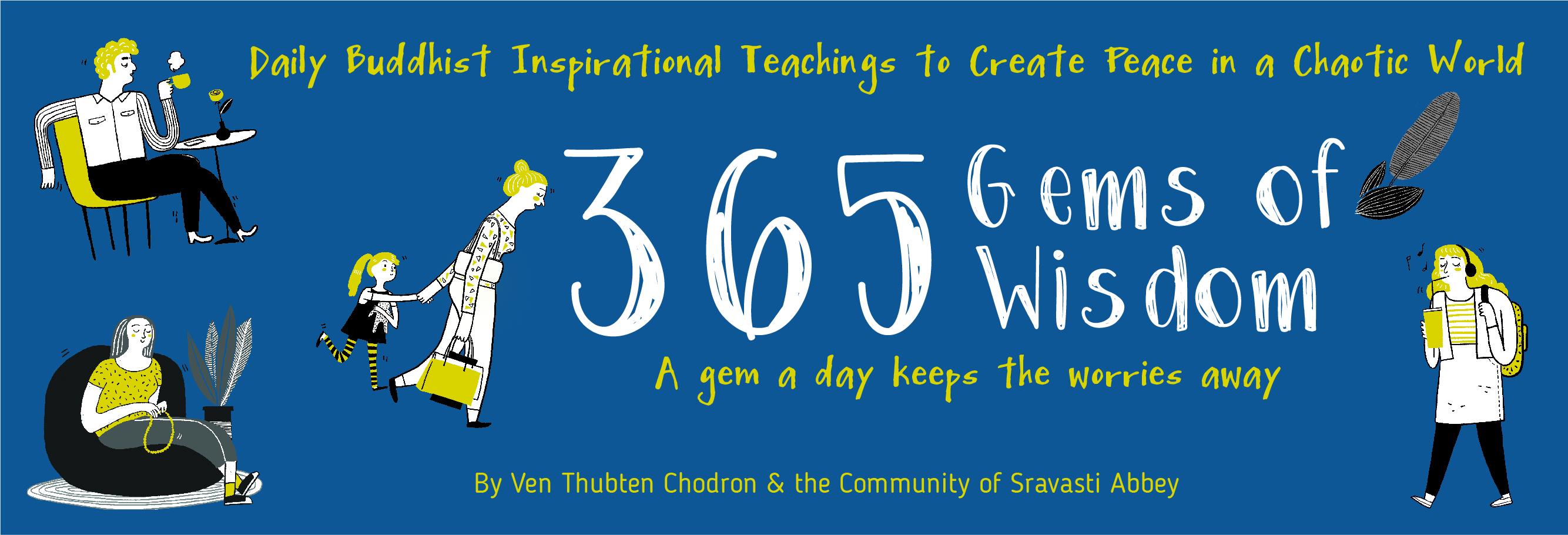July 25 : Guilt
It is important to realise that guilt from the Buddhist viewpoint is a hindrance to liberation and awakening. While regret is something beneficial because we realise our mistaken actions, guilt is not beneficial because it gets into a lot of self-blame and an exaggerated sense of self saying, “I am so bad. I am the worst.” It is important to differentiate between guilt, regret and generate regret, which lets you heal, forgive and apologise.
There is also guilt-tripping. When guilt-tripping is going on, one person is trying to make the other person feel responsible for one’s unhappiness. From a Buddhist viewpoint, we are all responsible for our unhappiness. Nobody else is responsible for it. It is not fair or legitimate or suitable for us to guilt-trip somebody else and try to make them feel bad about what they have done. Instead, we should recognise how our karma put us in this situation and how our delusions are responding to this situation. That is not blaming ourselves. Sometimes in this life, we did not do anything that caused a situation or made us deserve it, but karmically we have some responsibility, and we are responsible for how we react to the situation in the present. Trying to guilt-trip somebody else is really not suitable from the Buddhist viewpoint. Similarly, if other people try to guilt-trip us, we have no reason to buy into it.
If other people try to make us feel bad about what we are doing because either they do not like it, they want us to do something else, they are unhappy and they want to blame it on us and make us feel bad; there is no reason for us to let that stick because it is their projection and their confusion. We take responsibility for our actions, and if we had indeed done something incorrectly in a situation, we acknowledge that. We are not responsible for other people’s feelings because we cannot make them feel anything. We are responsible for our bad motivations, but if we had acted with good intentions and they are still upset or angry, there is no reason for us to feel guilty about it. If they try to guilt-trip us, that is quite manipulative, and we will concede if we buy into it.
Sometimes we fall very much into our old habits of how we emotionally react to things, either blaming or guilt-tripping someone else or letting ourselves be guilt-tripped or feeling guilty. In the beginning, we may get rather confused about it all because the old habits and emotions are there. But when you bring your wisdom into the situation, and if you really think about it, then over time you will be able to really clarify things — what is your responsibility, and what is somebody else’s responsibility? That makes human relationships much clearer.
“365 Gems of Wisdom” e-book is out now!

